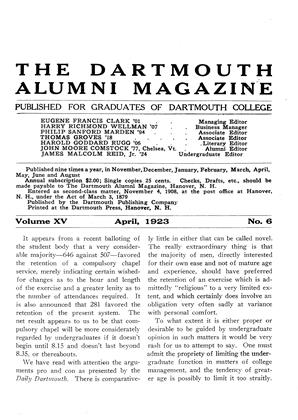In November, 1830, Rufus Choate was elected -to Congress, defeating B. W. Crowinshield, who was a candidate for re-election on his record as a supporter of Andrew Jackson. Choate was reelected in 1832, but resigned in 1834 without completing his term, and set up law practice in Boston.
The document here reproduced throws light upon a possible reason for his resignation. At his election he was but thirty-one years old, and had been unable to accumulate any money; he found he could not go to Washington for the term of Congress which opened in December, 1831, without borrowing for his necessary expenses. Through his brother, David, he was able to obtain four hundred dollars, pledging his inheritance from their father's estate as security.
In 1853, Rufus Choate was more prosperous, and on his own motion arranged to loan his brother's son, Rufus, one hundred dollars a year without interest until he should finish a college education. The letters in which the elder Rufus proposed this arrangement, as well as others from him during the life-time of the project, were carefully preserved by his nephew—together with a quite essential translation into legible English, — and are now in the possession of his son-inlaw, Judge Ralph W. Crockett of the Municipal Court of Lewiston, Maine. The document shown in the cut, nine by fourteen inches in size, hangs under glass in Judge Crockett's law office.
There is a grain of comfort in these autographs to those who are not "Rufus Choate" scholars. It would be hard to find one who would take a lower grade in "Caligraphy" than the same Rufus Choate. And yet, there are some merits even in the old methods; the ink is superb, and almost splashed on with no niggardly hand. It has only browned a bit with the passage of the decades, and stands out on the surface of the paper until a blind person could almost read it with his finger tips.
In these days when we are accustomed to candidates spending money by the tens of thousands simply to get nominated, it may be well for us to heed the admonition, "Who shall despise the day of small things ?" The statesmanship of the young man who had to borrow money to get to Washington does not suffer in comparison with that of some present day legislators.
The photograph here reproduced and the explanatory text were furnished by Charles F. Robinson '90
 View Full Issue
View Full Issue
More From This Issue
-
 Article
ArticleIt appears from a recent balloting
April 1923 -
 Article
ArticleAN ALUMNUS ON THE OUTING TRAIL
April 1923 By ALBION B. WILSON '95 -
 Article
ArticleTHE SELECTIVE PROCESS AFTER ONE SEMESTER
April 1923 -
 Article
ArticleMEMBERS OF COLLEGE GET HIGH SCHOLARSHIP RECORDS
April 1923 -
 Article
ArticleINDIVIDUAL RECORDS OF PHI BETA KAPPA SENIORS
April 1923 -
 Class Notes
Class NotesCLASS OF 1911
April 1923 By Nathaniel G. Burleigh







